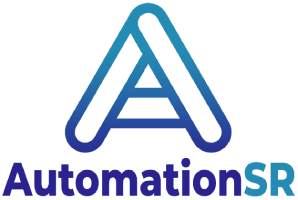OK. It’s not ALL about the Benjamins. But they are important to most of us. Money discussions have been a consistent concern in job interview seminars I have conducted over the past six years and proper handling can offer the potential to add $10,000, $25,000, or far more to a job seeker’s annual income
 The contents of this blog are a general introduction to this important and complex topic. I will write more on this important subject in future posts.
The contents of this blog are a general introduction to this important and complex topic. I will write more on this important subject in future posts.
First, as discussed in my book Fast Track Your Job Search (and Career!), consider the classic admonition that “He who speaks first loses.” Keep this in mind throughout your job search — and particularly once you have begun discussions with a potential employer. Speaking first may (a) lock you in to a number that sets the bar too low, thus lowering your possible income or (b) immediately eliminate you from contention due to you setting the bar too high.
Next, consider the following general perspectives for guidance:
1. If you strongly desire to move past the current step in the job interview process, no matter where you may be, then be more cautious with your responses.
2. If you are unsure about your interest in the position or clearly have no interest unless a certain minimum income is available, you may want to quote a specific amount (or at least a bottom level in a range) that is your firm minimum. This will better insure that you do not go through an extensive interview process, only to learn that your income desires have no chance of being met.
Third, be prepared mentally for money discussions to surface in each of these steps in the interview process:
Initial Phone Screen – This early step is frequently a “check the boxes” exercise conducted by an HR person. A common question would be “What are your salary requirements?” They want to know if you are too expensive or too cheap.
In-Person – In your initial in-person interview (or initial phone/video interview in some cases), you may be asked to confirm figures you provided in the phone screen or money may arise for the first time.
Final – If the money topic has somehow been deferred to the final interview, you are in a better negotiating position as you have made it through most of the screening process and you are one of the finalists.
Interviews Complete, Job Offer Being Discussed – In some odd situations, the employer may not discuss money until they are ready to make you an offer. Most will share specific monetary terms at this point and seek a verbal agreement.
Lastly, whenever money is discussed it is crucial that you have a pre-defined strategy and have specific numbers in mind. Here are some options and basic example wording for responding:
a. Redirect – “I’m sure you have guidelines in your company. What does this position pay?” or “What is budgeted for this position?”
b. Delay tactic – “I need to know more about this opportunity, just as you want to evaluate my suitability. If things look like a fit from both sides, I’m sure that money will not be an issue” or “I would need to know more about the responsibilities, benefits package, etc., to define my compensation expectations.”
c. Offer a range – “I’m not totally aware of the job requirements and benefits package at this point, but a range of ____ to ___/yr would seem appropriate. How does that sound to you?” or “Based upon research I have done, the market for this type position seems to be in the range of _____ to ____/yr and that will work for me. Is that in your range?”
d. State a firm minimum – “Based upon my last position and what I currently understand about this job, I would expect this to pay at least _____/yr. Is that within your range?” or “In my current/last position with XYZ Corp I was earning ________ and would expect to earn ________ in the position we are discussing. Would that work for you?”
Be prepared and you might just gain that $10K, $25K, or larger annual compensation increase by handling money discussions effectively. What about you? What have been your positive or negative experiences discussing money with potential employers?
Author:
Richard Kirby is an executive career consultant, speaker on career strategies, and author of Fast Track Your Job Search (and Career!). Richard Kirby’s earlier experience includes managing engineering, human resources, marketing and sales teams for employers that ranged from a Fortune 100 to a VC-funded entrepreneurial startup. For the past 11 years at Executive Impact, Richard has helped hundreds of executives and professionals successfully navigate today’s transformed 21st century job market and achieve better employment for themselves. Richard’s expertise includes career assessments and goal setting, personal marketing/branding, resume enhancement, strategic networking and job interviewing, and “contrarian” job search methodologies. He is a Board Certified Coach (in career coaching) and a Certified Management Consultant (recognized by the ISO).



